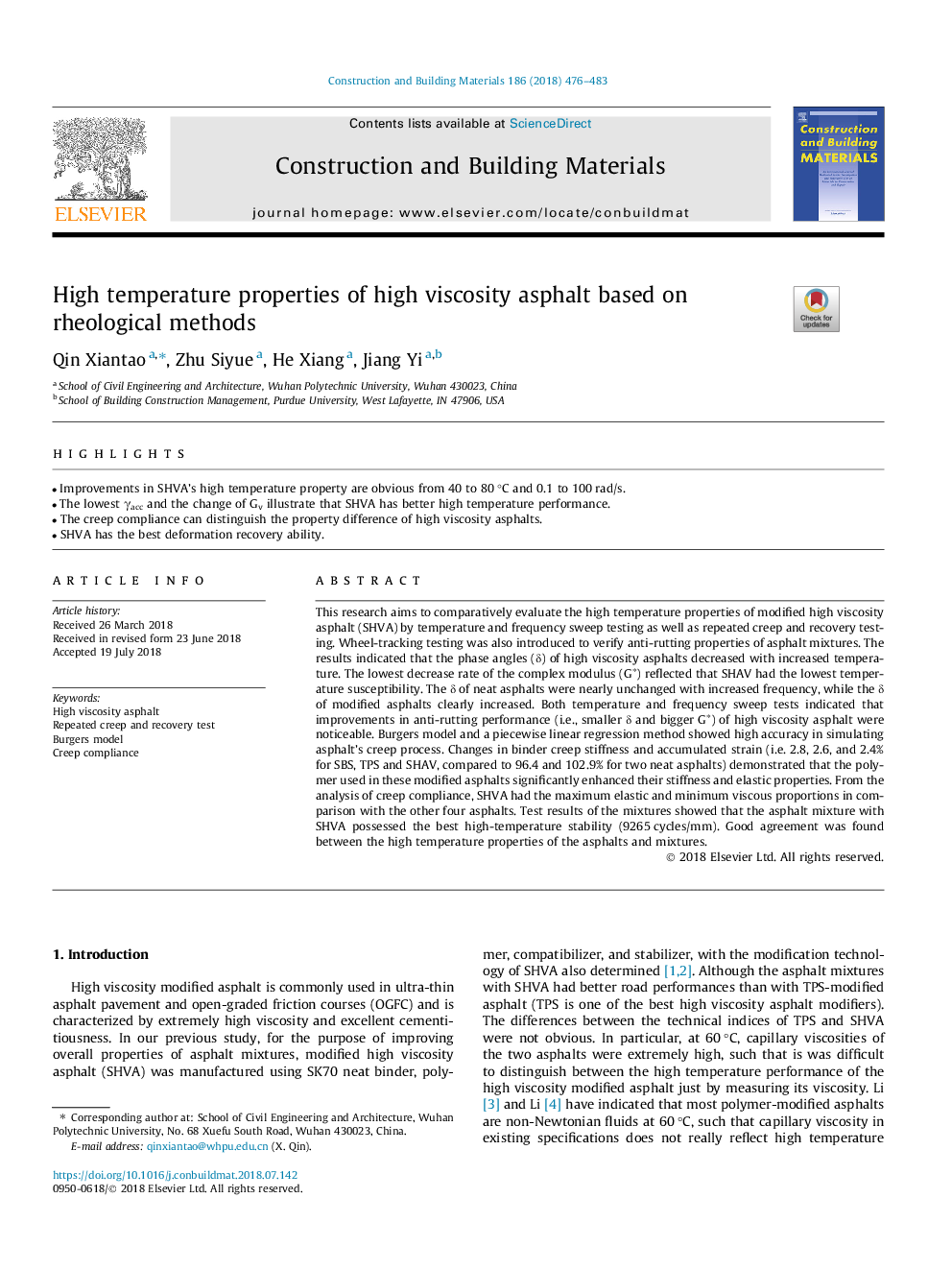| Article ID | Journal | Published Year | Pages | File Type |
|---|---|---|---|---|
| 6711669 | Construction and Building Materials | 2018 | 8 Pages |
Abstract
This research aims to comparatively evaluate the high temperature properties of modified high viscosity asphalt (SHVA) by temperature and frequency sweep testing as well as repeated creep and recovery testing. Wheel-tracking testing was also introduced to verify anti-rutting properties of asphalt mixtures. The results indicated that the phase angles (δ) of high viscosity asphalts decreased with increased temperature. The lowest decrease rate of the complex modulus (Gâ) reflected that SHAV had the lowest temperature susceptibility. The δ of neat asphalts were nearly unchanged with increased frequency, while the δ of modified asphalts clearly increased. Both temperature and frequency sweep tests indicated that improvements in anti-rutting performance (i.e., smaller δ and bigger Gâ) of high viscosity asphalt were noticeable. Burgers model and a piecewise linear regression method showed high accuracy in simulating asphalt's creep process. Changes in binder creep stiffness and accumulated strain (i.e. 2.8, 2.6, and 2.4% for SBS, TPS and SHAV, compared to 96.4 and 102.9% for two neat asphalts) demonstrated that the polymer used in these modified asphalts significantly enhanced their stiffness and elastic properties. From the analysis of creep compliance, SHVA had the maximum elastic and minimum viscous proportions in comparison with the other four asphalts. Test results of the mixtures showed that the asphalt mixture with SHVA possessed the best high-temperature stability (9265â¯cycles/mm). Good agreement was found between the high temperature properties of the asphalts and mixtures.
Keywords
Related Topics
Physical Sciences and Engineering
Engineering
Civil and Structural Engineering
Authors
Qin Xiantao, Zhu Siyue, He Xiang, Jiang Yi,
